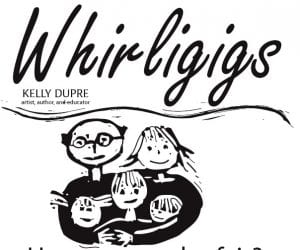This is the fourth in a series of articles written after being influenced by a wonderful book called What Do You Stand For? A Guide to
Building Character
by Barbara A. Lewis.
In her book, she gives stories, definitions and activities that parents, teachers and kids can all talk about and do together to help build strong character. She names caring, citizenship, fairness, forgiveness, honesty, relationships, respect, responsibility and safety as important traits we can learn and practice. As each person works on the positive traits, they become an important part of each individual. This article will focus on fairness.
Fairness, what does it mean? It’s easy to know what isn’t fair. You know it’s not fair when someone pushes ahead of you in line or when your sister takes more than her share of dessert. But to be fair means you need to take action. You think about and treat people the way you want to be treated. It means trying to give everyone their fair share of rights and chances. Fairness is important not only while playing games but throughout all parts of everyday life.
There are many ways to work on being fair. You can share and take turns and show respect for others even if they are different than you. It’s especially important to try and find solutions that are fair even when someone isn’t fair to you.
If you are having trouble with someone who isn’t being fair, you can try and talk about it, ask an adult to help, ignore it if it doesn’t bother you too much, change activities, laugh it off if possible, or leave the situation if you need to.
Life isn’t always fair, even if you do your best to be fair. But if people see you working hard to be fair you will gain their respect and trust and they will try harder to be fair as well.
To help you and your family or classroom work on being fair, start a Fairness Jar. You will need a large glass jar, coffee can, or box with a lid, a label or some paper to cover your container, markers in a variety of colors, scissors, and some plain or colored paper.
Label and decorate your container and place it where everyone in the family or classroom can reach it. Cut paper into slips and place them next to the jar. When something unfair happens to somebody, that person can write a note about it and place it in the jar. Once a week, take some time to discuss the different things that could have been done to make the situation more fair.
Kelly Dupre of Grand Marais is an artist, children’s
author, and educator with over 20 years teaching
experience with all age groups in a variety of settings.
The activities in this once-a-month column are
spin-offs and combinations of ideas she has used
and learned from teachers, parents, kids, books,
and workshops. Only some of the activities has she
actually thought of herself!



Loading Comments